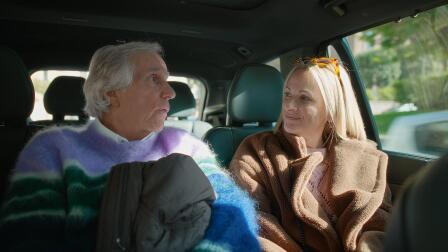Back to Show
American Masters
How Hannah Arendt developed the concept of "the banality of evil"
Hannah Arendt came up with the concept of “the banality of evil” during her coverage of the 1961 trial of Adolf Eichmann. During the trial, Eichmann, one of the main organizers of the Holocaust, insisted that he was only obeying the law and following orders. Arendt said: “There’s simply the reluctance ever to imagine what the other person is experiencing. That is the banality of evil.”
Support Provided By

Unlock with PBS Passport
1:53:01
Explore the life of the famous singer who became an icon for the civil rights movement.

Unlock with PBS Passport
52:28
Explore the life of artist Keith Haring who revolutionized pop culture and fine art.

1:23:25
Delve into the enigmatic life of Pulitzer Prize-winning author and poet N. Scott Momaday

Unlock with PBS Passport
53:11
Trace the journey of one of America’s greatest choral music conductors.

1:52:53
Explore the entertainer’s life with unprecedented access to his archives. Director's cut.

1:24:03
See a new side of innovative writer Edgar Allan Poe, best known for Gothic horror tales.

Unlock with PBS Passport
53:37
Today he is known as a kitchen supernova, but Jacques Pépin's career began humbly.

Unlock with PBS Passport
1:53:14
"The Queen of Country Music” is still going strong after more than 50 years of music.

1:23:12
Explore the mysterious life of Harper Lee, the author of To Kill a Mockingbird

Unlock with PBS Passport
1:23:10
Ric Burns’ documentary on the rich, 75-year history of the preeminent ballet company.

53:20
Explore the creative genius of I.M. Pei as he reshapes the future of architecture in China

Unlock with PBS Passport
1:23:09
The first film biography about the celebrated author, Louis May Alcott.











